Analysis of How VPNS Enable Online Privacy
Based on the document, VPNS contribute to online privacy through several key mechanisms:
Encryption of Internet Traffic
- VPNS encrypt all internet traffic, converting sensitive data into code that’s unreadable to third parties.
- This prevents internet service providers (ISPS) from monitoring your online activities.
- Encryption creates a secure “tunnel” for your data to travel through
IP Address Concealment
- VPNS hide your real IP address by routing traffic through their servers
- Websites see the VPN server’s IP address rather than your actual device’s IP
- This makes it difficult to trace your physical location or identify you online
- While not guaranteeing complete anonymity, it adds a significant layer of privacy protection
Protection on Public Wi-Fi
- VPNS provide security when using potentially vulnerable public networks
- They encrypt connections on public Wi-Fi, preventing hackers from intercepting data
- This is especially important since public networks are common targets for cybercriminals
Additional Privacy Features
- Some VPNS include built-in features that block malicious websites, ads, and trackers.
- This “blacklisting” capability prevents harmful sites from accessing your data.
- Automatic kill switches temporarily disconnect you if the VPN connection becomes unstable, preventing data leaks.
Privacy for Sensitive Work
- The document explicitly mentions that VPNS enable individuals working on sensitive topics to remain anonymous.
- They provide a secure environment for sharing confidential documents
- This is particularly valuable for research, journalism, or other work requiring discretion
Considerations for Effective Privacy
The document notes that for maximum privacy benefit, users should look for VPNS with:
- Strict no-logs policies (not collecting or saving your browsing data)
- 256-bit encryption (the highest-level currently available)
- Automatic kill switch functionality
- Trustworthy providers that don’t share browsing activities with third parties
The article emphasises that while VPNS are powerful privacy tools, they’re most effective when used in conjunction with other good security practices and when selecting reputable providers.
Applying VPN Privacy Concepts to the Singapore Context
When considering how VPNS can enable online privacy in Singapore, there are several specific applications and considerations worth noting:
Internet Regulation in Singapore
Singapore has relatively strict internet regulations and monitoring compared to some other countries. A VPN can help maintain privacy by:
- Encrypting your browsing data from potential monitoring
- Concealing specific online activities from your ISP
- Preventing the tracking of your digital footprint
Data Protection
Singapore has robust data protection laws (PDPA – Personal Data Protection Act), but a VPN adds an additional layer of security by:
- Encrypting data that might otherwise be collected by websites, apps, or services
- Reducing exposure to data breaches that could affect Singapore residents
- Protecting sensitive personal information from unauthorised collection
Public Wi-Fi Security
Singapore has extensive public Wi-Fi networks (including Wireless@SG), which are convenient but potentially vulnerable:
- Using a VPN on these networks encrypts your connection
- Protects financial transactions and personal data when using coffee shops, libraries, or public hotspots
- Particularly important in high-traffic tourist areas and transportation hubs
Access to Information
A VPN can help Singapore residents:
- Access educational resources or content that might be geographically restricted
- Maintain privacy when researching sensitive topics
- Secure communications when dealing with confidential business or personal matters
Business Applications
For businesses in Singapore’s growing tech sector:
- Enables secure remote work capabilities
- Protects proprietary information when employees connect from various locations
- Creates secure channels for international business communications
Choosing a VPN in Singapore
When selecting a VPN in Singapore, look for:
- Servers are located both within Singapore (for faster local connections) and internationally
- Strong privacy policies that comply with Singapore’s regulatory environment
- Reliable performance that won’t significantly slow down internet speeds, which are typically very fast in Singapore
- Providers that maintain security while working within Singapore’s legal framework
Remember that while VPNS enhance privacy, they should be used as part of a comprehensive approach to online security, including strong passwords, two-factor authentication, and awareness of phishing attempts and other security threats.
Optimising Privacy with a VPN
Based on the document and general best practices, here’s how to maximise your privacy when using a VPN:
Choose the Right VPN Provider
- Look for strict no-logs policies: Select providers that explicitly don’t collect or store your browsing data.
- Verify 256-bit encryption: This highest-level encryption standard ensures maximum data protection.
- Research the provider’s reputation: Avoid less-reputable VPNS that might share your data with third parties.
- Check for independent audits: VPNS that have undergone third-party security audits offer more accountability.
Configure Your VPN Properly
- Enable the automatic kill switch: This prevents data leakage in the event that your VPN connection drops unexpectedly.
- Use the most secure protocols: Openvpn or WireGuard protocols generally provide the best security.
- Disable Webrtc in your browser: This prevents potential IP leaks even when using a VPN
- Enable DNS leak protection: Ensures your DNS requests are routed through the VPN.
Usage Best Practices
- Keep your VPN running consistently: Avoid switching it on and off, as this creates privacy gaps.
- Connect to recommended servers: Some servers may provide better security or performance.
- Regularly update your VPN software, as updates often include critical security patches.
- Check your connection: Periodically verify your VPN is working by confirming your IP address has changed.
Additional Privacy Measures
- Use alongside privacy-focused browsers: Browsers with tracking protection complement VPN security.
- Consider using Tor with a VPN for particularly sensitive activities
- Implement multi-factor authentication for your VPN account
- Be cautious with cookies and browser fingerprinting: VPNS don’t protect against all tracking methods
Avoid Common Pitfalls
- Don’t rely solely on free VPNS: They often have weaker security or may sell your data.
- Be aware of connection speed impacts: Choose servers that strike a balance between privacy needs and acceptable speeds.
- Understand geo-restrictions: Some services actively block VPN access; you may need to try a different server.
Regular Privacy Audits
- Periodically test for IP/DNS leaks: Use online tools to verify your VPN is properly masking your identity.
- Review which devices are protected: Ensure all your devices are correctly configured
- Stay informed about your VPN provider: Be aware of changes in ownership or privacy policies.
Remember that while a VPN significantly enhances your privacy, it’s not a complete solution. It works best as part of a comprehensive approach to online privacy and security.
Free VPNs generally lack the features of paid providers, but there are still some quality options available.
Top 3 Free VPNs
- PrivadoVPN Free
- Rated as the best overall free VPN
- Offers 10 GB data monthly (plus slow unlimited data afterwards)
- Breakneck (950 Mbps speeds in testing)
- Can unblock UK and US Netflix, BBC iPlayer
- Servers in 10 countries with 13 locations
- Simple, easy-to-use interface
- Uses industry-standard AES-256 encryption
- Main limitation: No independent audit of their privacy policy yet
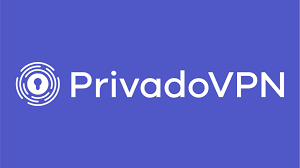
- Proton VPN Free
- Most substantial for privacy (independently audited)
- Unlimited data allowance
- Good speeds (520 Mbps)
- Servers in 5 countries
- Main limitation: Cannot choose specific servers (randomly assigned)
- Not adequate for streaming services
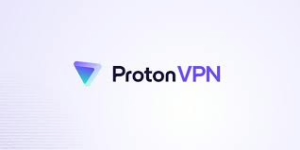
- Windscribe Free
- 10 GB data monthly
- Excellent speeds (900 Mbps)
- Can unblock some Netflix locations and BBC iPlayer
- Most feature-rich free VPN (advanced privacy features)
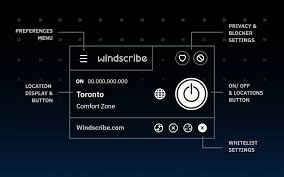
- Servers in 11 countries with 14 locations
- Main limitation: Complex, unintuitive interface
Other Free VPNs Mentioned
- Hide.me: 10 GB data, suitable for torrenting but limited to 25 Mbps speeds
- Hotspot Shield: Unlimited data with good speeds but shows ads and has limited server options
Everyday Use Cases for Free VPNs
Avoiding censorship and surveillance:
Bypassing government restrictions on websites and services
- Enhancing online privacy: Hiding your activity from ISPs and websites
- Staying safe on public Wi-Fi: Protecting from man-in-the-middle attacks
- Accessing sites while abroad: Especially useful for banking services that might lock accounts when used from foreign locations
Limitations of Free VPNs
- Data caps (except for Proton VPN)
- Limited server locations
- Often poor for streaming services
- May have slower speeds
- Fewer features than paid options

How These VPNs Were Tested
The author evaluated:
- Privacy features (encryption, kill switches, logging policies)
- Speed performance
- Streaming capabilities
- Server availability
- Ease of use
- Support options
While free VPNs have limitations, they can still be helpful for basic privacy needs, and the recommended options are considered safe to use.
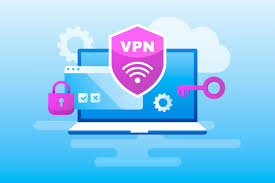
Bright VPN: A Comprehensive Analysis
Introduction to Bright VPN
Bright VPN is a virtual private network service that entered the increasingly competitive VPN market in recent years. Like other VPNs, it promises to encrypt users’ internet connections, mask their IP addresses, and provide a layer of privacy and security when browsing online. However, Bright VPN has some specific characteristics and limitations that potential users should understand before choosing it as their privacy solution.
Core Features and Offerings
Bright VPN provides the standard suite of VPN functionalities that most users expect:
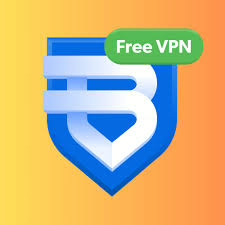
- Connection encryption: Uses tunnelling protocols to encrypt data between your device and the internet
- IP masking: Hides your actual IP address behind one provided by their servers
- No-logs policy: Claims not to keep records of user browsing activities
- Multiple device support: Allows connections on various platforms, including Windows, macOS, iOS, and Android
- Server network: Offers servers in multiple countries, though with less extensive coverage than premium providers
Performance Considerations
When evaluating Bright VPN’s performance, several factors stand out:
Speed: Like many free and budget VPNs, Bright VPN typically shows a noticeable speed reduction compared to your regular connection. This is particularly evident when connecting to distant servers. Users might experience slower page loading, buffering during streaming, and increased latency for online gaming.
Server reliability: The service sometimes struggles with server overcrowding, especially during peak usage hours. This can result in occasional connection drops or difficulty establishing connections to preferred locations.
Streaming capabilities: Bright VPN has had limited success unblocking streaming services like Netflix, Disney+, and BBC iPlayer. Major streaming platforms have become increasingly sophisticated at detecting and blocking VPN connections, and Bright VPN lacks the resources of premium providers to continually update its circumvention methods.
Privacy and Security Analysis
The privacy and security aspects of Bright VPN deserve particular scrutiny:
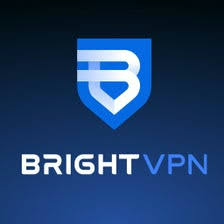
Encryption standards: Bright VPN utilises industry-standard encryption protocols, although it is not always transparent about specific implementation details. This lack of transparency raises some concerns among privacy experts.
Jurisdiction: Understanding the country where a VPN is based is crucial because of varying data retention laws. Bright VPN’s jurisdiction isn’t always clearly communicated, which creates uncertainty about what legal pressures they might face to share user data.
Independent audits: Unlike leading VPN providers such as Protonvpn or Nordvpn, Brightvpn has not undergone comprehensive independent security audits to verify its privacy claims. This lack of third-party verification is a significant drawback for privacy-conscious users.
Data practices: The service’s privacy policy contains some concerning clauses that suggest certain types of data collection might occur. The policy language lacks the specificity and commitments found in top-tier VPN services.
Business Model Concerns
Bright VPN’s business model raises important questions that potential users should consider:
Free VPNs must generate revenue somehow, and when the product is free, users should question whether they might be the product. Bright VPN appears to use a combination of:
- Advertisements within the application
- Potential data collection for marketing purposes
- Upselling to premium tiers
This model differs significantly from subscription-based premium VPNs that have a clear revenue stream from paying customers.
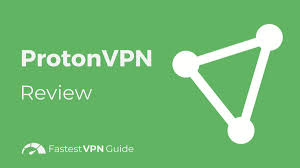
Comparison to Industry Leaders
When compared to established VPN providers, Bright VPN shows several key differences:
Server network: Much smaller than networks offered by Nordvpn (5,500+ servers), Expressvpn (3,000+ servers), or Surfshark (3,200+ servers)
Features: Lacks advanced features like split tunnelling, multi-hop connections, or specialised servers for streaming or torrenting
Transparency: Provides less detailed information about security practices, server ownership, and company operations than industry leaders
Support: Offers more limited customer support options with slower response times than premium alternatives
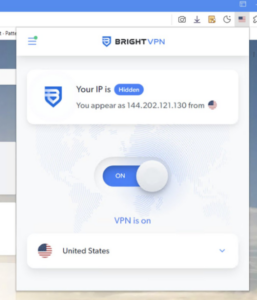
Use Cases: When Might Bright VPN Be Appropriate?
Despite its limitations, Bright VPN could be suitable in specific scenarios:
- Essential browsing privacy: For users who simply want to prevent their ISP from seeing their browsing activities
- Occasional public Wi-Fi use: Provides some protection when connecting to unsecured networks in cafes or airports
- Accessing essential geo-restricted content: May work for less restrictive websites that don’t aggressively block VPNS
- Budget-conscious users: Those unwilling or unable to pay for premium VPN services
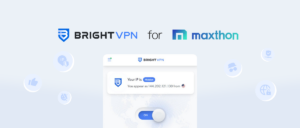
Significant Limitations and Concerns
Potential users should be aware of several important drawbacks:
Reliability issues: Users frequently report inconsistent connection quality and unexpected disconnections
Limited support for streaming: Struggles to reliably unblock major streaming platforms
Questionable privacy practices: Lack of transparency and independent verification raises concerns about actual privacy protection
Limited protocol options: Offers fewer connection protocol choices than premium services
Potential data sharing: The privacy policy contains some concerning language about data collection and sharing.
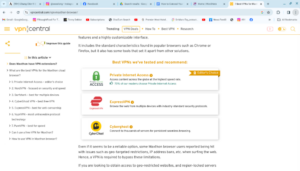
Conclusion and Recommendations
Bright VPN is a basic VPN service that offers limited functionality, lacking the robust privacy guarantees of premium providers. It might serve as an entry-level option for users with minimal privacy needs and low expectations for performance.
However, established premium providers like Nordvpn, Expressvpn, Proton VPN, or Surfshark would better serve users with serious privacy concerns, those needing reliable streaming access, or individuals who require consistent performance.
For those specifically seeking a free VPN option, Privadovpn Free, Proton VPN Free, or Windscribe Free—all of which have been more thoroughly tested and documented—would likely provide a more reliable experience with more precise privacy practices than Bright VPN.
The fundamental reality of VPN services remains: truly robust privacy protection and consistent performance typically require a financial investment in a reputable service with a clear business model and demonstrated commitment to user privacy.
Secure browsing

When it comes to staying safe online, using a secure and private browser is crucial. Such a browser can help protect your personal information and keep you safe from cyber threats. One option that offers these features is the Maxthon Browser, which is available for free. It comes with built-in Adblock and anti-tracking software to enhance your browsing privacy.
By utilising Maxthon Browser, users can browse the internet confidently, knowing that their online activities are shielded from prying eyes. The integrated security features alleviate concerns about potential privacy breaches and ensure a safer browsing environment. Furthermore, the browser’s user-friendly interface makes it easy for individuals to customise their privacy settings according to their preferences.
Maxthon Browser not only delivers a seamless browsing experience but also prioritises the privacy and security of its users through its efficient ad-blocking and anti-tracking capabilities. With these protective measures in place, users can enjoy the internet while feeling reassured about their online privacy.
Additionally, the desktop version of Maxthon Browser integrates seamlessly with their VPN, providing an extra layer of security. By using this browser, you can minimise the risk of encountering online threats and enjoy a safer internet experience. With its combination of security features, Maxthon Browser aims to provide users with peace of mind while they browse.
Maxthon Browser is a reliable choice for users who prioritise privacy and security. With its robust encryption measures and extensive privacy settings, it offers a secure browsing experience that gives users peace of mind. The browser’s commitment to protecting user data and preventing unauthorised access sets it apart in the competitive web browser market.
